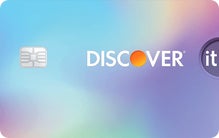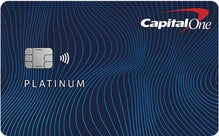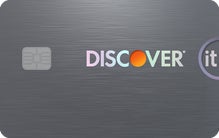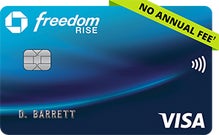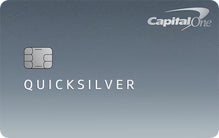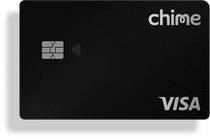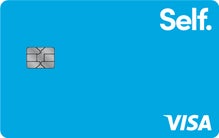Best credit cards for no credit history in February 2026
Advertiser Disclosure: Bankrate’s editorial team chooses and recommends the credit cards on this page. Our websites may earn compensation when a customer clicks on a link, when an application is approved, or when an account is opened. However, our recommendations and card ratings are produced independently without influence by advertising partnerships with issuers.
Filter by
Showing 8 results
Intro offer
Cashback Match
Rewards Rate
1% - 5%
Annual fee
$0
Regular APR
16.49% - 25.49% Variable APR
Why you'll like this: This card is every bit as valuable as its non-student counterpart, which is rare for a student card.
Reward Details
What you should know
Card Details
Best for a low deposit
Intro offer
N/A
Annual fee
$0
Regular APR
28.99% (Variable)
Why you'll like this: This card can give you a credit limit higher than your security deposit if you pay less than $200, giving you some breathing room while you build your credit.
What you should know
Card Details
Best secured card
Intro offer
Cashback Match
Rewards Rate
1% - 2%
Annual fee
$0
Regular APR
26.49% Variable APR
Why you'll like this: This card earns twice as many rewards as most other cards’ base rewards rates in two popular spending categories.
Reward Details
What you should know
Card Details
Intro offer
$25 statement credit
Rewards Rate
1.5%
Annual fee
$0
Regular APR
25.24%
Why you'll like this: It’s a great fit if you want a low-cost, rewarding starter card that doesn’t require a deposit.
Reward Details
What you should know
Card Details
Best starter rewards card
Intro offer
N/A
Rewards Rate
1.5% - 5%
Annual fee
$0
Regular APR
28.99% (Variable)
Why you'll like this: Its solid flat rate matches the flat rewards rate of most other flat-rate cards, despite its status as a secured card.
Reward Details
What you should know
Card Details
Intro offer
N/A
Annual fee
None
Regular APR
N/A
Why you'll like this: You can build credit in a safer manner compared to other cards, without worrying about extra fees and high interest rates.
Reward Details
What you should know
Card Details
Best for building a credit mix
Intro offer
N/A
Annual fee
$0 annual fee for the first year only, $25 annual fee thereafter.
Regular APR
27.49% APR Variable
Why you'll like this: You can diversify your credit mix with just one product to build credit fast, without a security deposit.
What you should know
Card Details
Best for no bank account
Intro offer
N/A
Annual fee
$35
Regular APR
23.89% (variable)
Why you'll like this: If you have negative marks on your credit report, you could have an easier time qualifying for this card than other credit-builder cards.
Reward Details
What you should know
Card Details
Remove a card to add another to compare
Remove a card to add another to compare
Compare Bankrate's top credit cards for no credit history
| Card name | Best for | Annual fee | Regular APR | Bankrate review score |
|---|---|---|---|---|
|
Students |
|
Intro Offer: Cashback Match
Intro Offer: Unlimited Cashback Match for all new cardmembers – only from Discover. Discover will automatically match all the cash back you’ve earned at the end of your first year! There’s no minimum spending or maximum rewards. You could turn $50 cash back into $100. Or turn $100 cash back into $200.
Regular APR: 16.49% - 25.49% Variable APR
|
5.0 / 5 Our writers, editors and industry experts score credit cards based on a variety of factors including card features, bonus offers and independent research. Credit card issuers have no say or influence on how we rate cards.
Apply now
on Discover's secure site
|
|
|
Low deposit |
|
Intro Offer: N/A
Regular APR: 28.99% (Variable)
|
4.1 / 5 Our writers, editors and industry experts score credit cards based on a variety of factors including card features, bonus offers and independent research. Credit card issuers have no say or influence on how we rate cards.
Apply now
on Capital One's secure site
|
|
|
Secured card |
|
Intro Offer: Cashback Match
Intro Offer: Unlimited Cashback Match for all new cardmembers—only from Discover. Discover will automatically match all the cash back you’ve earned at the end of your first year! There’s no minimum spending or maximum rewards.
Regular APR: 26.49% Variable APR
|
5.0 / 5 Our writers, editors and industry experts score credit cards based on a variety of factors including card features, bonus offers and independent research. Credit card issuers have no say or influence on how we rate cards.
Apply now
on Discover's secure site
|
|
|
No deposit |
|
Intro Offer: $25 statement credit
Earn a $25 statement credit after signing up for automatic payments within the first three months of opening your account. With automatic payments, just pick a date and dollar amount to make sure your Credit Card gets paid on time.
Regular APR: 25.24%
|
4.2 / 5 Our writers, editors and industry experts score credit cards based on a variety of factors including card features, bonus offers and independent research. Credit card issuers have no say or influence on how we rate cards.
Apply now
on Chase's secure site
|
|
|
Accessible credit |
|
Intro Offer: N/A
Regular APR: 0% APR
|
|
|
|
Starter rewards card |
|
Intro Offer: N/A
Regular APR: 28.99% (Variable)
|
4.2 / 5 Our writers, editors and industry experts score credit cards based on a variety of factors including card features, bonus offers and independent research. Credit card issuers have no say or influence on how we rate cards.
Apply now
on Capital One's secure site
|
|
|
Flexible credit line |
|
Intro Offer: N/A
Regular APR: N/A
|
4.2 / 5 Our writers, editors and industry experts score credit cards based on a variety of factors including card features, bonus offers and independent research. Credit card issuers have no say or influence on how we rate cards.
Apply now
on Chime's secure site
|
|
|
Building a credit mix |
|
Intro Offer: N/A
Regular APR: 27.49% APR Variable
|
3.1 / 5 Our writers, editors and industry experts score credit cards based on a variety of factors including card features, bonus offers and independent research. Credit card issuers have no say or influence on how we rate cards.
Apply now
on Self's secure site
|
|
|
No bank account |
|
Intro Offer: N/A
Regular APR: 23.89% (variable)
|
3.1 / 5 Our writers, editors and industry experts score credit cards based on a variety of factors including card features, bonus offers and independent research. Credit card issuers have no say or influence on how we rate cards.
Apply now
on opensky's secure site
|
